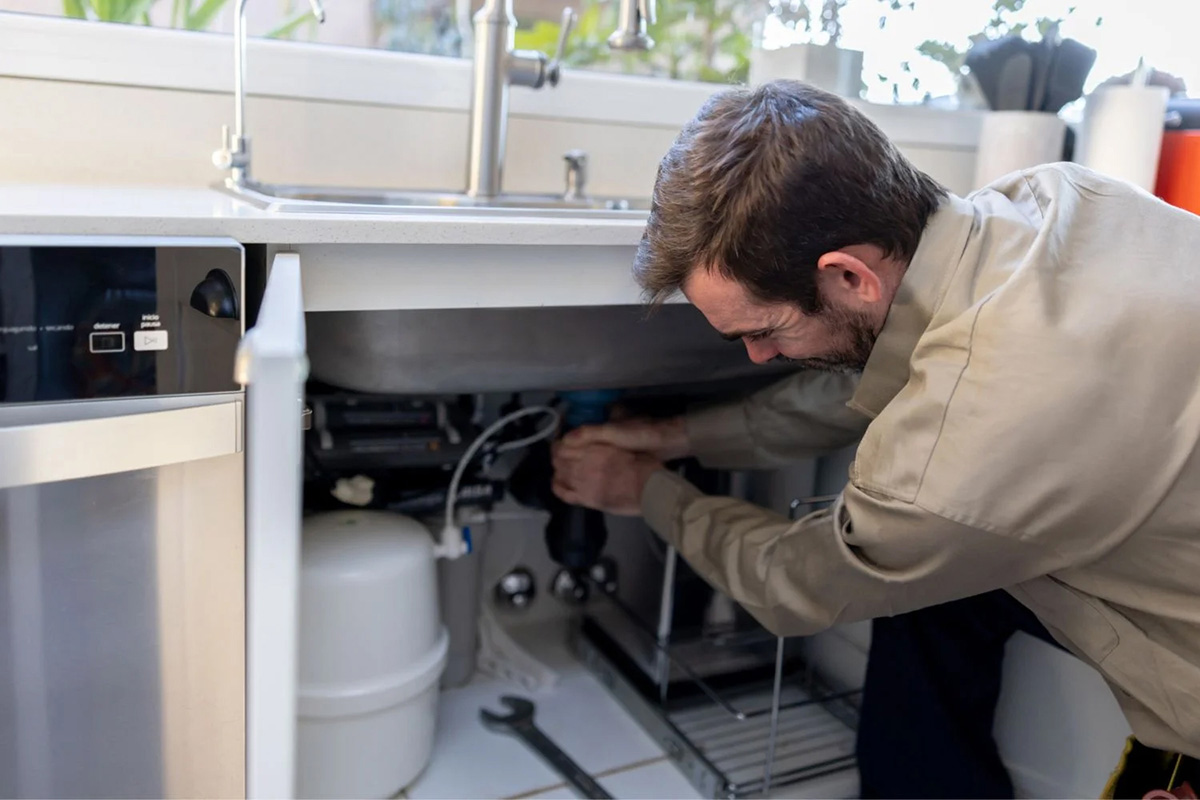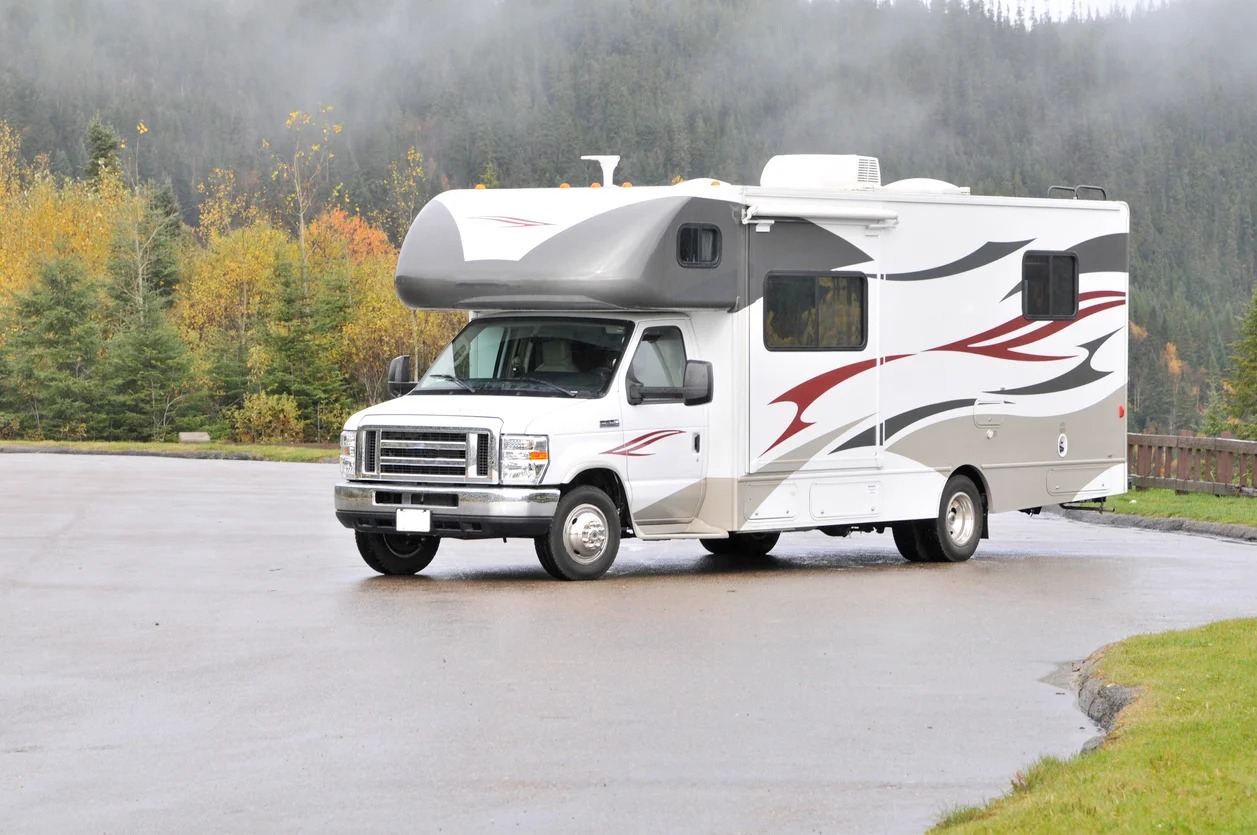

Finance
What Kind Of Insurance Does A Handyman Need
Published: November 14, 2023
Find out the essential insurance coverage a handyman needs to protect their finances and business. Get comprehensive finance insurance today.
(Many of the links in this article redirect to a specific reviewed product. Your purchase of these products through affiliate links helps to generate commission for LiveWell, at no extra cost. Learn more)
Table of Contents
Introduction
Being a handyman entails a wide range of tasks and responsibilities, from fixing leaky faucets to renovating entire homes. Regardless of the specific services offered, the nature of this work carries certain risks that can result in financial losses or legal liabilities. That is why having the right insurance coverage is crucial for a handyman. Insurance provides protection against unexpected events, accidents, property damage, or injuries that may occur during the course of work.
Without adequate insurance, a handyman could be exposed to significant financial risks and legal complications. Insurance not only safeguards the handyman’s business and assets but also provides peace of mind to clients. When clients hire a handyman, they generally expect that the work will be completed safely and to a high standard. Insurance coverage demonstrates the handyman’s professionalism and commitment to client satisfaction.
In this article, we will explore the different types of insurance that a handyman should consider to ensure comprehensive coverage. From liability insurance to workers’ compensation and professional liability coverage, each type of insurance serves a unique purpose. By understanding these options, handymen can make informed decisions about their insurance needs and protect their business in the event of unforeseen circumstances.
Liability Insurance
Liability insurance is one of the most crucial types of insurance for handymen. It protects against claims of property damage or bodily injury that may arise during the course of work. For example, if a handyman accidentally causes water damage to a client’s property while fixing a plumbing issue, liability insurance can cover the cost of repairs and any legal fees that may ensue.
This type of insurance provides coverage for legal defense costs, settlements, or judgments that may be awarded to the injured party. Without liability insurance, handymen could be held personally liable for such expenses, which can be financially devastating. Liability insurance offers peace of mind and protects handymen from the potential financial ruin that could result from a lawsuit or claim.
When selecting liability insurance, it is important to consider the coverage limits and exclusions. The coverage limits determine the maximum amount that the insurance company will pay in the event of a claim. Handymen should evaluate their business needs and choose coverage limits that adequately protect their assets.
It is also essential to review the policy exclusions and ensure that the insurance coverage aligns with the specific services provided. For instance, if a handyman offers electrical work, it is vital to confirm that the liability insurance includes coverage for electrical-related claims.
Overall, liability insurance is a fundamental component of a handyman’s insurance portfolio. It provides financial protection and safeguards the handyman’s business from claims and lawsuits, giving both the handyman and their clients confidence in the quality and safety of the services provided.
Property Insurance
Property insurance is another important type of insurance that handymen should consider. This coverage protects the handyman’s business assets, including tools, equipment, and supplies, from a variety of risks such as theft, fire, vandalism, or natural disasters.
As a handyman, your tools and equipment are vital for carrying out your work effectively. Whether it’s power tools, ladders, or specialized machinery, these items represent a significant investment. Property insurance ensures that you are protected if your tools are damaged, destroyed, or stolen.
Additionally, property insurance may also cover damage to the physical location of your business, such as a workshop or office space. If a fire were to break out and destroy your workspace, property insurance would help cover the costs of repairs or rebuilding.
When selecting property insurance, it is important to carefully consider the coverage limits and any exclusions that may apply. Handymen should assess the value of their tools and equipment to determine the appropriate coverage limit. It is also essential to review the policy for any limitations, such as exclusions for certain types of tools or equipment.
Keep in mind that property insurance typically does not cover losses due to wear and tear or mechanical breakdown. It is advisable to regularly assess the value of your tools and equipment and update your insurance coverage accordingly.
Having property insurance gives handymen the peace of mind that their valuable assets are protected. In the event of theft, damage, or loss, this coverage ensures that you can quickly replace or repair your tools and equipment, minimizing any disruptions to your business operations.
Business Interruption Insurance
Business interruption insurance is a type of coverage that provides financial protection to handymen in the event of a significant disruption to their business operations. This could include situations such as a fire, natural disaster, or other unforeseen events that render a handyman unable to work for a period of time.
When a handyman’s business is interrupted due to an unexpected event, it can lead to a loss of income and financial strain. Business interruption insurance helps alleviate these financial burdens by covering the loss of income during the period of interruption.
This type of insurance provides coverage for ongoing expenses, such as rent, utilities, and employee salaries, even when the business is unable to operate. It can also cover additional expenses incurred to minimize the loss or to expedite the resumption of business activities, such as renting temporary workspace or acquiring new equipment.
Business interruption insurance is especially important for handymen who rely heavily on their business income to support themselves and their families. It helps provide a safety net and ensures that they can continue to meet their financial obligations, even in challenging times.
When considering business interruption insurance, it is important to carefully review the policy terms and conditions. Pay attention to the waiting period, which is the time you must wait after the interruption before the coverage begins. Additionally, ensure that the policy includes coverage for a wide range of scenarios that could disrupt your business, such as natural disasters, vandalism, or other unexpected events.
While no one can predict when a disruption to their business may occur, having business interruption insurance gives handymen the peace of mind that they are protected financially and can recover quickly from unforeseen events.
Workers’ Compensation Insurance
Workers’ compensation insurance is a mandatory type of coverage for handymen who have employees. This insurance provides benefits to employees who suffer work-related injuries or illnesses. It ensures that employees receive compensation for medical expenses, lost wages, and rehabilitation costs, while also protecting the handyman from potential lawsuits.
Accidents can happen in any workplace, and the handyman industry is no exception. Whether it’s a slip and fall, a tool-related injury, or exposure to hazardous materials, employees can be at risk while performing their duties. Workers’ compensation insurance provides the necessary financial assistance to injured employees, ensuring they receive proper medical care and compensation for any resulting disability or income loss.
In addition to covering medical expenses and lost wages, workers’ compensation insurance may also offer vocational rehabilitation services to help injured employees return to work. This can include job retraining, physical therapy, or other necessary accommodations to enable a full recovery and successful reintegration into the workforce.
It is important for handymen to comply with their state’s workers’ compensation requirements to avoid penalties or legal issues. Even if local regulations do not mandate workers’ compensation insurance, having this coverage in place is highly recommended to protect both the handyman and their employees.
When obtaining workers’ compensation insurance, handymen should accurately assess their business operations and employee risks. By providing correct information, handymen can ensure they have the appropriate coverage in place. It is also important to review the policy terms to understand coverage limits, exclusions, and any specific conditions that may apply.
Workers’ compensation insurance not only protects the financial well-being of employees, but it also safeguards the handyman’s business from potential lawsuits and legal liabilities. By having this coverage in place, handymen can demonstrate their commitment to the well-being of their employees and maintain a safe working environment.
Tools and Equipment Insurance
As a handyman, your tools and equipment are critical assets that enable you to efficiently and effectively carry out your work. Therefore, it is important to have insurance coverage specifically designed to protect these valuable items. Tools and equipment insurance provides coverage for damage, loss, or theft of your tools and equipment.
Handymen often invest a significant amount of money in acquiring the necessary tools and equipment for their trade. However, accidents can happen, and tools can be damaged or stolen, potentially causing financial setbacks and disruptions to your business. Tools and equipment insurance ensures that you are protected by providing compensation for repair or replacement costs.
When selecting tools and equipment insurance, it is important to accurately assess the value of your items and choose appropriate coverage limits. Consider the cost of replacing each tool and equipment piece in case of damage or theft. It is also advisable to review the policy for any exclusions or limitations on coverage. Some policies may have exclusions for certain high-value items or impose deductibles.
Additionally, some tools and equipment insurance policies may offer coverage for rental equipment that you may use occasionally. This can be particularly useful if you often rent special tools for specific jobs or require temporary replacements while your items are being repaired or replaced.
It is also important to keep an inventory of your tools and equipment, including their serial numbers, purchase dates, and values. This documentation can be invaluable when filing a claim with your insurance provider.
Having tools and equipment insurance provides peace of mind, knowing that your valuable assets are protected. In the event of damage, loss, or theft, this coverage ensures that you can quickly replace or repair your tools and equipment, minimizing any interruptions to your business operations.
Vehicle Insurance
If you use a vehicle as a handyman, whether for transporting tools and equipment or traveling to job sites, it is essential to have proper vehicle insurance coverage. Vehicle insurance provides protection in the event of accidents, damage, or theft involving your vehicle.
As a handyman, your vehicle is a valuable and essential tool for your business. It is not only a means of transportation but also a mobile office that carries your tools, equipment, and supplies. Therefore, ensuring that your vehicle is adequately insured is crucial.
Vehicle insurance typically offers different types of coverage, including liability, collision, and comprehensive coverage. Liability coverage protects you in case you cause damage to someone else’s property or injure someone while using your vehicle for business purposes. Collision coverage covers the cost of repairs to your vehicle if it is involved in an accident. Comprehensive coverage protects against non-collision incidents such as theft, vandalism, or natural disasters.
When selecting vehicle insurance, it is important to assess your business needs and choose the appropriate coverage levels. Consider the value of your vehicle and the potential risks involved in your line of work. If you transport expensive tools or equipment in your vehicle, you may also want to consider additional coverage to protect these valuable items.
It is crucial to provide accurate information about your vehicle and its usage to your insurance provider. Failure to disclose any business-related use of your vehicle may result in a denial of coverage in case of a claim. Additionally, keeping up with regular maintenance and following safe driving practices can help reduce the risk of accidents and maintain a good insurance record.
Having the right vehicle insurance not only protects your vehicle but also safeguards your business from potential financial losses. In the event of an accident or theft, vehicle insurance provides the necessary coverage to repair or replace your vehicle and get you back on the road quickly.
Professional Liability Insurance
Professional liability insurance, also known as errors and omissions insurance, is a crucial type of coverage for handymen who provide advice, recommendations, or specialized services. This insurance protects against claims of negligence, errors, or omissions that may arise from the performance of your professional duties.
Handymen often provide expertise and guidance to clients, whether it’s advising on the best materials to use, offering design suggestions, or providing technical expertise. However, mistakes or misunderstandings can occur, and clients may hold handymen responsible for any resulting damages or financial losses. Professional liability insurance provides the necessary financial protection in case of such claims.
This type of insurance coverage can help cover legal expenses, settlements, or judgments that may be awarded to the client in a professional negligence lawsuit. It can also provide coverage for reputational damage that may arise from a claim, as well as defense costs associated with defending against unfounded claims.
When selecting professional liability insurance, consider the specific services you offer as a handyman. Ensure that the policy covers the specific areas of expertise and services you provide, and that it aligns with the potential risks associated with your work.
Professional liability insurance offers peace of mind to both handymen and their clients. It demonstrates your commitment to providing quality services, while also protecting your business from financial hardships that may result from a claim or lawsuit.
It is important to carefully review the policy terms and conditions, including any limitations, exclusions, and coverage limits. Some professional liability insurance policies may require the handyman to maintain certain professional certifications or meet specific standards of practice.
By having professional liability insurance in place, handymen can focus on delivering exceptional services to their clients, knowing that they have the necessary coverage to handle any potential professional liability claims that may arise.
Conclusion
As a handyman, having the right insurance coverage is essential for protecting your business, assets, and reputation. While navigating the world of insurance may seem overwhelming, understanding the various types of coverage available can help you make informed decisions to mitigate risks and safeguard your financial well-being.
Liability insurance provides protection against claims of property damage or bodily injury, ensuring you are covered in case of accidents or mishaps during your work. Property insurance safeguards your tools, equipment, and physical workspace, offering peace of mind in the face of theft, damage, or natural disasters.
Business interruption insurance helps you navigate unforeseen events that disrupt your business, covering ongoing expenses and ensuring minimal financial strain during these challenging times. Workers’ compensation insurance protects your employees and your business, providing coverage for work-related injuries and illnesses.
Tools and equipment insurance ensures that your valuable assets are protected from damage, loss, or theft, allowing you to quickly replace or repair essential tools and equipment. Vehicle insurance offers coverage for accidents and damage to your vehicle while it is used for business purposes.
Lastly, professional liability insurance protects you from potential claims of negligence or errors in the advice or services you provide, offering financial support and defense against legal proceedings.
By carefully assessing your business needs, understanding the coverage options available, and selecting the appropriate policies, you can safeguard your business, assets, and clients’ trust. Remember to review policy terms, coverage limits, and exclusions to ensure that you have comprehensive protection tailored to your specific handyman services.
Investing in the right insurance coverage is not just a legal requirement in some cases, but it also demonstrates your professionalism, commitment to quality work, and the welfare of your clients and employees.
Take the time to explore different insurance providers, compare quotes, and consult with insurance professionals to find the best options that meet your needs and budget. By doing so, you can confidently focus on delivering top-notch handyman services while protecting your business in any unforeseen circumstances.














